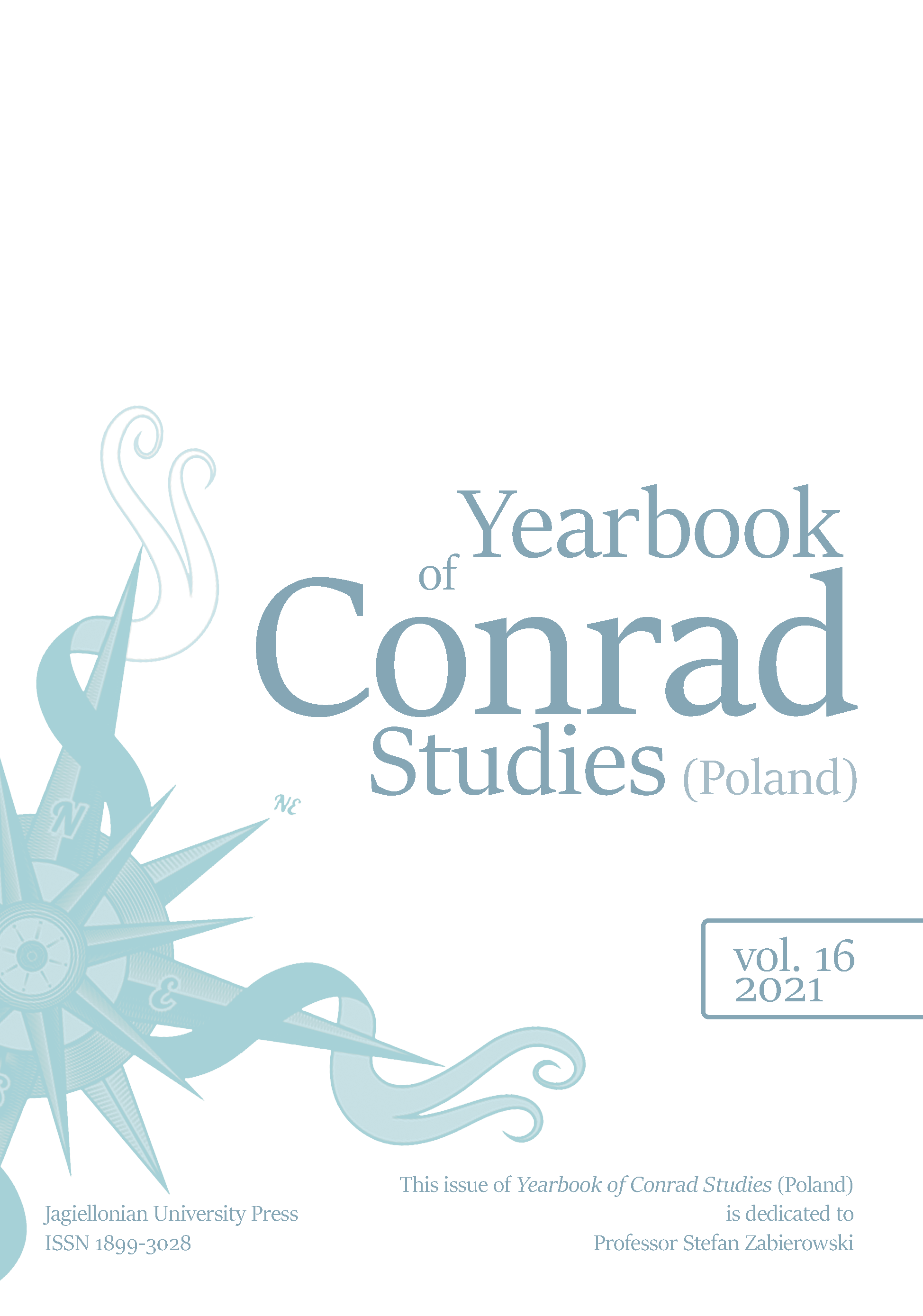Joseph Conrad in the eyes of Kazimierz Wierzyński: Fearless of the Boundless and Familiar with the Infinite
Joseph Conrad in the eyes of Kazimierz Wierzyński: Fearless of the Boundless and Familiar with the Infinite
Author(s): Jolanta DudekSubject(s): Language and Literature Studies, Studies of Literature, Sociology of Literature
Published by: Wydawnictwo Uniwersytetu Jagiellońskiego
Keywords: 10.4467/20843941YC.21.002.19292
Summary/Abstract: Kazimierz Wierzyński (1894-1969) is now considered to be one of the greatest modern Polish poets. He was born in Drohobycz (which is now in western Ukraine) and studied literature and philosophy in Cracow and Vienna. During the interwar years he lived in Warsaw, after which for several years (1939-1941) he lived as a wartime refugee before spending more than twenty years in the United States. An émigré for the rest of his life, he finally settled in London, where he died in 1969. Wierzyński’s poetry – like the works of Joseph Conrad – exhibits a particular sensibility to nature (perceived as a living organism) and the outside world, which is full of extraordinary places, objects, people and phenomena that invite us to reflect on the deeper meaning of our existence as human beings. Both writers share a stoic response to adversity and a fidelity to conscience and to the heritage of European culture. In his 1924 sketch entitled “Conrad’s Great Silence,” Wierzyński saw Conrad above all as a writer who yearns for the infinite, whose “maritime reflection is reproduced in his work.” Twelve years later, in a narrative poem entitled Lord Jim (forming part of his 1936 collection entitled Kurhany), Wierzyński brought the eponymous character of Conrad’s novel into the pantheon of the Polish collective imagination. The fate of Lord Jim, who is tormented by nostalgia for his native England (to which he cannot return) would seem to foreshadow that of the émigré poet whom Wierzyński himself was soon to become. In the titular poem of Wierzyński’s wartime collection Róża wiatrów (The Wind Rose – 1942), Conrad appears as a “role model” for all Polish wartime refugees and émigrés, who, like castaways, search for their own guiding light “in the Conradian sky” – a light that could help them find a safe haven where they could live and work in their own artistic realm without the need to care about literary fashions. This poem has been translated into English (under the title The Compass Rose) by Mary Phelps (Kazimierz Wierzyński, Selected Poems, New York: Voyages Press, 1959). In the opinion of the author of the present article, this translation fails to correctly convey certain key images and allusions which enrich the meaning of the poem and which connect it with the poet’s own personal situation as an émigré writer.
Journal: Yearbook of Conrad Studies (Poland)
- Issue Year: 2021
- Issue No: XVI
- Page Range: 21 - 31
- Page Count: 11
- Language: English

